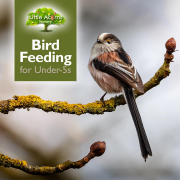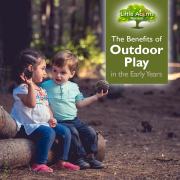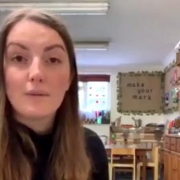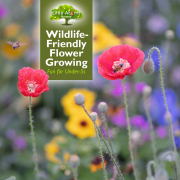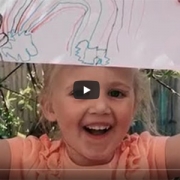Little Citizen Scientists Needed for the Big Garden Birdwatch
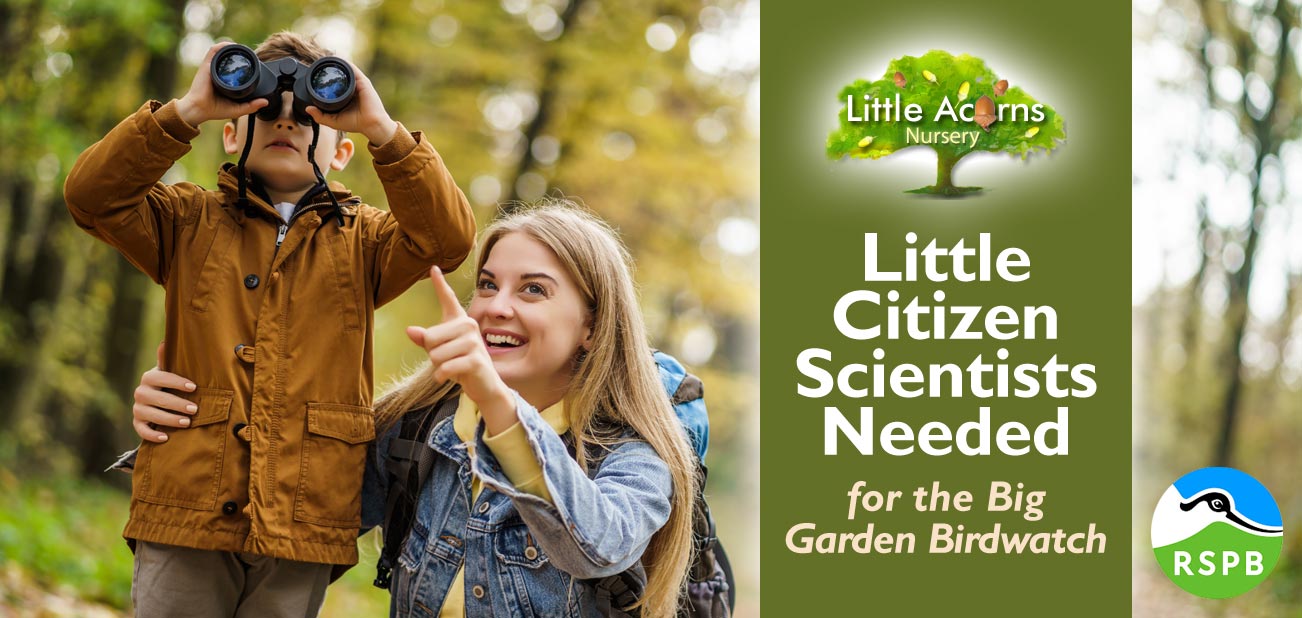
 January’s Big Garden Birdwatch is a perfect home learning opportunity where children can find out about wild birds and get a better understanding of nature itself. What’s more, it’s a hugely worthwhile event that will benefit birds, conservation efforts, and children themselves. The activity also demonstrates how easy it is for little ones to become citizen scientists. With that in mind, let’s explore today the Big Garden Birdwatch, explain what it is, how to take part, and why it’s important for families to get involved.
January’s Big Garden Birdwatch is a perfect home learning opportunity where children can find out about wild birds and get a better understanding of nature itself. What’s more, it’s a hugely worthwhile event that will benefit birds, conservation efforts, and children themselves. The activity also demonstrates how easy it is for little ones to become citizen scientists. With that in mind, let’s explore today the Big Garden Birdwatch, explain what it is, how to take part, and why it’s important for families to get involved.
What Is the Big Garden Birdwatch?
The Big Garden Birdwatch is the world’s biggest garden wildlife survey and is organised by the Royal Society for the Protection of Birds (RSPB). It’s an annual survey of garden birds and is undertaken in late January each year by individuals, families and children right across the UK. Taking part is free and typically takes just one hour.
What’s the Goal?
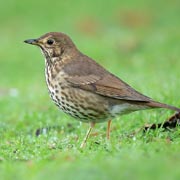 The idea of the Big Garden Birdwatch is to understand how garden birds are faring in the UK. Sadly, many bird populations are in decline, with some species facing huge declines over recent decades. Some 38 million fewer birds are now seen compared to 60 years ago. Song Thrush populations, for example, are down by 80% since the survey started in 1979. Even House Sparrow numbers have more than halved during that time. By studying the bird populations each year, trends can be identified including whether any bird species are in danger. Then the RSPB and other conservation organisations can work out what the problems are and how we might go about rescuing the situation as a nation. It also follows that, if there is a problem with bird populations, then there is likely to be a wider problem in nature too. This could be, for example, due to disease, over-intensive farming methods, habitat loss, invasive species, climate change, use of chemicals in gardens and farmland, and so on. Gathering data across the UK each January will help guide the nation to improve things — and children can help by getting involved in the Big Garden Birdwatch each January.
The idea of the Big Garden Birdwatch is to understand how garden birds are faring in the UK. Sadly, many bird populations are in decline, with some species facing huge declines over recent decades. Some 38 million fewer birds are now seen compared to 60 years ago. Song Thrush populations, for example, are down by 80% since the survey started in 1979. Even House Sparrow numbers have more than halved during that time. By studying the bird populations each year, trends can be identified including whether any bird species are in danger. Then the RSPB and other conservation organisations can work out what the problems are and how we might go about rescuing the situation as a nation. It also follows that, if there is a problem with bird populations, then there is likely to be a wider problem in nature too. This could be, for example, due to disease, over-intensive farming methods, habitat loss, invasive species, climate change, use of chemicals in gardens and farmland, and so on. Gathering data across the UK each January will help guide the nation to improve things — and children can help by getting involved in the Big Garden Birdwatch each January.
How Children & Families Can Take Part
Taking part is easy and takes just 4 steps:
- Register here to take part
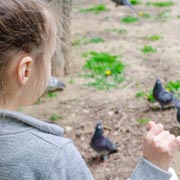 — it’s quick, easy and free to do so. Once registered you’ll receive detailed instructions in your free guide to the event, which includes your free bird identification reference sheet. This will be useful to you and your children so each bird species can be recognised more easily.
— it’s quick, easy and free to do so. Once registered you’ll receive detailed instructions in your free guide to the event, which includes your free bird identification reference sheet. This will be useful to you and your children so each bird species can be recognised more easily. - Next, choose an outdoor spot to monitor. This will be your ‘patch’ and it could be your garden, balcony or perhaps even a local park. Optionally before the event begins (late January – see below), you may wish to start putting out bird food to attract more birds to the patch in the run-up to the event.
- Sometime during the period 26-28 January 2024, spend an hour noting down how many birds of each species you see actually land at any one time on your patch. So, for example, if you see four blackbirds during the hour but only 3 land on the patch at the same time, you’d count that as 3. That’s simply to avoid counting the same bird more than once.
- Once complete, fill in and submit your survey results to the RSPB. This can be done any time from 26 January to 18 February 2024 and indeed that link may only work during that date range. You can submit more than one survey if you like, so long as each submission is for a different location/patch. The RSPB will then analyse all the submissions from across the UK and be able to see how each bird species is faring.
Can’t get outdoors?
If you can’t get outdoors for any reason, don’t feel left out. Children and families can undertake the January birdwatching event from a window or balcony too, so long as they can view an outdoor patch where birds are likely to land.
The Huge Benefits of Nature to Children
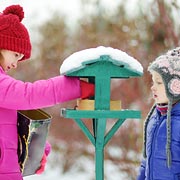 This wonderful activity is a great way to encourage families outdoors, where children benefit from nature in a myriad of ways. From lower stress and increased well-being to improved academic performance, stimulated imaginations, and better sleep, the benefits of nature to children are profound. Studies show that even a view of nature will benefit children — it’s incredible! Click the bold green link for more details.
This wonderful activity is a great way to encourage families outdoors, where children benefit from nature in a myriad of ways. From lower stress and increased well-being to improved academic performance, stimulated imaginations, and better sleep, the benefits of nature to children are profound. Studies show that even a view of nature will benefit children — it’s incredible! Click the bold green link for more details.
The survey is also a great opportunity for children to practise counting and enhance numeracy skills. It’s also a good excuse to get creative, for instance by building a cardboard or stick bird-spotting ‘hide’ — the perfect den from which to watch the birds when the time comes.
Involvement in the Big Garden Birdwatch also allows children to get a better understanding of conservation issues and the need to protect nature and the planet. That’s incredibly important, not least because today’s children will be tomorrow’s caretakers of our precious Earth.
Reference & Bird Identification
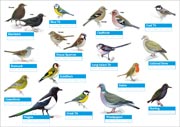 Together with the RSPB, we also have bird identification covered for children. The first option is the RSPB’s free bird reference sheet, which families will receive when they register for the event. Their digital version is best because it’s more environmentally friendly, is quicker to access, and usually shows a larger list than is shown on their printed version.
Together with the RSPB, we also have bird identification covered for children. The first option is the RSPB’s free bird reference sheet, which families will receive when they register for the event. Their digital version is best because it’s more environmentally friendly, is quicker to access, and usually shows a larger list than is shown on their printed version.
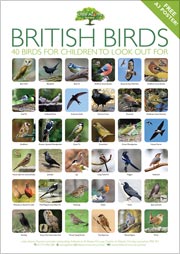 However, don’t forget that Little Acorns Nursery also published our own bird identification poster for children last year. That is also free to download (follow that bold green link) and shows many more species of birds than the RSPB’s option — perfect if children are really interested in bird spotting and want to continue after the January event.
However, don’t forget that Little Acorns Nursery also published our own bird identification poster for children last year. That is also free to download (follow that bold green link) and shows many more species of birds than the RSPB’s option — perfect if children are really interested in bird spotting and want to continue after the January event.
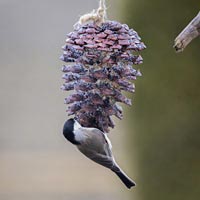 How to Encourage Birds to Visit Your Garden
How to Encourage Birds to Visit Your Garden
If children and families want to make a real success of the Big Garden Birdwatch event, a few preparation measures will help attract more birds to their patch. We have that covered too with our separate post all about how to make home-made bird feeders and another explaining a number of excellent tips on bird feeding for under-fives. In addition, the RSPB offers a discount on bird food, purchased via their website, to anyone that registers for the event.
Outstanding Childcare in Clayton-le-Woods, Chorley
Looking for the Best Nursery or Preschool in Clayton-le-Woods, Chorley, or Central Lancashire?


Today’s article was brought to you by Little Acorns Nursery in Clayton-le-Woods, Chorley, an outstanding provider of childcare and early years education. Our outstanding nursery status is backed up by Ofsted and an important National Nursery Award too. So, if you want the very best start for your baby or child under five and live in the area, consider Little Acorns Day Nursery for your weekday childcare provision. We’ll bring out the best in your child, help them achieve personal bests, and give them the tools to absolutely thrive. We support many different Government-funded free childcare schemes too, making childcare more affordable for those who are eligible.
Get in touch today to request a nursery place, arrange a free tour of the setting, or ask us any questions — we’re here to help!
As well as being perfectly located for families in Clayton-le-Woods and Chorley, we may also suit those living nearby in Clayton Brook, Clayton Green, Thorpe Green, Pippin Street, Buckshaw Village, Whittle-le-Woods, Farington, Bamber Bridge, Lostock Hall, Euxton, Leyland or Penwortham.

